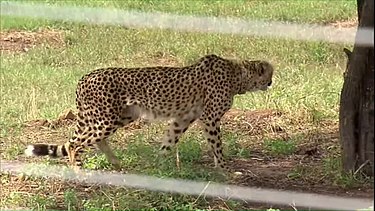India's Latest Conservation Milestone: Importing a Fresh Batch of African Cheetahs for Project Cheetah, Boosting Efforts in Wildlife Protection and Habitat Restoration.
In September 2022, India embarked on an ambitious journey to reintroduce the majestic cheetahs to its wild landscapes under the banner of Project Cheetah. This initiative sought to establish a viable cheetah metapopulation within India, contributing to global conservation efforts. However, as the project completes its first year, there are mixed results and concerns about its impact on the conservation landscape. In this article, we delve into the progress, setbacks, and the broader implications of this audacious endeavour.

Project Cheetah's Status
A year into Project Cheetah, the initiative has imported a total of 20 adult African cheetahs. The first batch of 8 cheetahs arrived in September 2022, followed by another 12 from South Africa in February 2023. However, the release of these cheetahs into the wild has been slower than anticipated. Only 12 of the 20 cheetahs have been released so far, with some brought back to captivity due to concerns about their survival.
Tragic Losses
6 cheetahs from the project have tragically died, with 4 succumbing while still in captivity, and 2 in the wild. Furthermore, 3 out of the 4 cubs born in India have also perished, with the sole survivor being hand-reared. These losses raise questions about the project's approach and the challenges cheetahs face in adapting to their new environment.
Causes of Mortality
Various causes have been attributed to the cheetahs' deaths, including renal conditions, stress during transportation, heatwave conditions, cardio-pulmonary failure, and complications during mating attempts. While these causes are not directly linked to the use of radio collars, there are questions about whether the cheetahs are susceptible to certain insects and parasites in India, potentially exacerbated by the collars.
Impact on Other Conservation Projects
One concerning aspect of Project Cheetah is its impact on other crucial conservation efforts in India. The initiative has drawn significant attention and resources away from projects focused on endangered species like the Great Indian Bustard and the translocation of Asiatic lions. Some have even argued that using African cheetahs to conserve grasslands and grassland-dependent species is a misguided strategy.
Lessons Learned
As Project Cheetah faces challenges and setbacks, it is essential to draw valuable lessons from this ambitious undertaking. Firstly, the project highlights the critical importance of adequate and suitable habitats. Merely importing cheetahs without ensuring their habitat requirements are met is not a viable strategy for long-term conservation. The focus should be on establishing high-quality habitats covering substantial areas.
Secondly, there is a need for wider consultation and increased transparency in conservation projects. Engaging stakeholders and sharing information openly can help identify potential pitfalls and garner support from the public and experts.
Project Cheetah is a bold and commendable effort to reintroduce cheetahs to India's wilderness, but its first year has not been without challenges and losses. The mortality of cheetahs and cubs, along with concerns about resource diversion from other conservation projects, raise important questions about the project's approach and its broader impact. Moving forward, it is crucial to prioritise habitat restoration and engage in transparent, collaborative efforts to ensure the success of this ambitious conservation endeavour. Ultimately, Project Cheetah serves as a reminder that preserving endangered species requires not just ambition but also meticulous planning and a deep understanding of the complex ecosystems they inhabit.